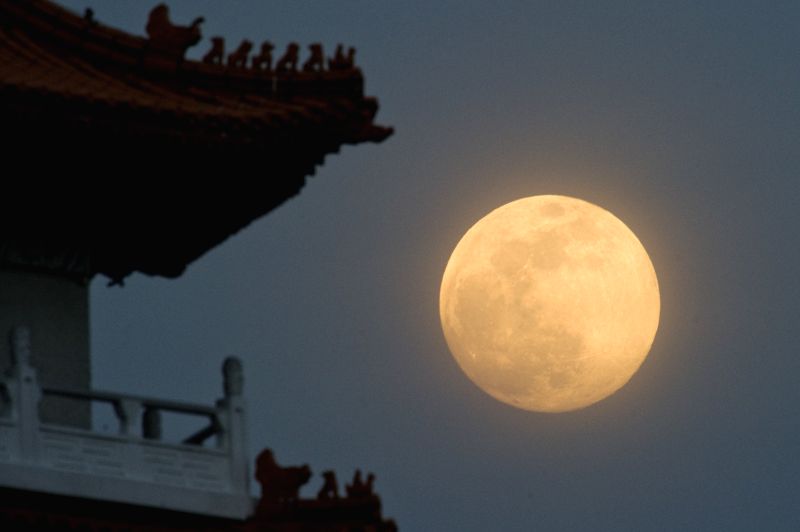Gazing at the moon has always been a universal human experience. From lovers serenading under its glow to poets penning down verses in its honor, the moon has been a silent witness to countless human emotions and stories. Purnima dates , or the full moon night, elevates this experience, enveloping the world in its silvery radiance.
In numerous cultures, this isn’t just a celestial event; it’s a spiritual journey. The Purnima Spiritual Significance transcends its mere luminosity, merging myth with belief. Purnima Spiritual Significance the tales, beliefs, and practices associated with Purnima have been passed down generations, making it more than just a lunar phase. This article unravels the rich tapestry of history, spirituality, and traditions that have shaped the perceptions and celebrations of Purnima, helping us understand why it continues to be revered and celebrated.
The Legend and Lore
Delving deep into the annals of history, the full moon night, Purnima, stands out as a beacon of myths, legends, and tales that have shaped cultures, beliefs, and practices across civilizations.
Purnima in Ancient Scriptures
The sacred scriptures, not just within India but globally, have lauded Purnima’s spiritual significance. Vedas, Puranas, and even texts from other cultures such as the Middle Eastern legends and European folklore have resonated with tales of the full moon. Purnima Spiritual Significance is often visualized as a time of heightened spiritual energy, a moment when the veils between realms thin, facilitating a closer connection to the divine.
Myths and Stories
The stories associated with Purnima are rich and varied:
Buddha’s Enlightenment: As per Hindu-Buddhist traditions, Purnima is considered especially significant because it marks the day when Prince Siddhartha Gautama attained enlightenment under the Bodhi tree, emerging as Lord Buddha.
End of Lord Krishna’s Childhood: In the Indian epic, Mahabharata, the night of Purnima marks the transition of Lord Krishna from his mischievous childhood in Gokul to his role as a divine leader in Mathura.
Moon’s Love Affair in Greek Mythology: In ancient Greek tales, Selene, the moon goddess, is said to have fallen in love with a mortal named Endymion. Every Purnima, she’d cast her full glow upon him, putting him into an eternal slumber, so she could gaze upon him without interruption.
Moon’s Role in Chinese Tales: Chinese legends often associate the full moon with immortality and love. One popular tale speaks of Chang’e, the moon goddess, and her descent to the moon, where she resides with a rabbit, forever gazing down at the Earth.
Native American Legends: Native American tribes have their own set of moon myths. For some, the patterns on the moon depict the tale of a rabbit or a woman who sacrificed herself for the community, and her spirit was immortalized on the moon’s surface.
The Universal Resonance
Irrespective of the cultural or geographical boundaries, one theme is universal: Purnima, with its radiant full moon, is a night of magic, wonder, and reverence. It’s a night when tales of yore are passed down, when families gather, and when individuals reflect upon the deeper mysteries of existence. The legends and lore surrounding Purnima make it more than a celestial event; it’s an integral part of human cultural and spiritual heritage. Purnima Spiritual Significance.
Spiritual Significance of Purnima
The spiritual fabric of Purnima is woven with threads of ancient beliefs, universal truths, and timeless practices that transcend geographical and cultural boundaries. It’s not just a night of celestial wonder but also a profound spiritual journey that resonates deeply with countless souls.
A Time for Meditation and Prayer
Purnima is widely regarded as a prime time for spiritual practices. With the moon at its zenith, its radiant energy is believed to amplify spiritual vibrations, allowing for deeper introspection and connection with the higher self. Meditation during this time is said to yield better focus, clarity, and peace.
The Symbolism of the Full Moon
The full moon, in its perfect roundness, embodies the essence of wholeness and completion. It’s a poignant reminder of the cyclical nature of life – birth, growth, decline, and rebirth. Purnima Spiritual Significance For spiritual seekers, this symbolizes the journey of the soul towards enlightenment, achieving its true potential and merging with the divine.
Purnima and Chakras
In many spiritual traditions, the full moon’s luminance is believed to activate the ‘Sahasrara’ or the crown chakra, which is the seat of pure consciousness. When activated, individuals might feel a heightened sense of awareness, interconnectedness, and universal love.
Purnima and Energy Cleansing
Purnima Spiritual Significance the full moon’s energy is often associated with purification. Many spiritual practitioners believe that the full moon is a time to release old energies, past traumas, and negative patterns. Rituals, including moon baths or simply exposing oneself to moonlight, are considered ways to cleanse the aura and refresh the spirit.
Rituals of Gratitude and Manifestation
As much as Purnima is a time for letting go, it’s also a powerful moment for manifestation. Setting intentions, visualizing desires, and offering gratitude are common practices. The heightened energy of the full moon acts as a magnifier for one’s thoughts and desires, helping manifest them into reality.
The Moon’s Connection to Feminine Energy
The moon, in many cultures, is considered a symbol of feminine energy or the ‘divine feminine’. Purnima, therefore, is a celebration of feminine qualities like intuition, creativity, nurturing, and healing. For many, it’s a time to honor and connect with the divine feminine within and in the universe. Purnima Spiritual Significance.
Traditions and Celebrations
Rituals and Customs
From lighting lamps to fasting and chanting mantras, numerous customs are observed on Purnima. These rituals help devotees show their gratitude and seek blessings from the divine. Purnima Spiritual Significance.
Festivals on Purnima
Various festivals, like Guru Purnima and Sharad Purnima, are celebrated on full moon days, each with its own set of traditions and stories.
Science Behind the Spirituality
The spiritual reverence for Purnima is undeniable, yet there’s a scientific underpinning to the sensations and experiences many attribute to this luminous night. Science and spirituality, often seen as disparate, find a unique confluence during Purnima, offering a holistic understanding of its significance.
The Lunar Effect on Human Psychology
Studies have long debated the “lunar effect” on human behavior and emotions. Some researchers propose that the full moon might influence sleep patterns, mood, and even cognitive abilities. While results remain inconclusive, many individuals self-report heightened emotional sensitivity and vivid dreams during Purnima Spiritual Significance.
The Gravitational Pull and Tidal Forces
The moon influences Earth’s tides due to its gravitational pull. Purnima Spiritual Significance, when the Earth, moon, and sun align, tidal forces are at their peak. The human body, being composed of about 60% water, might subtly respond to these forces, possibly influencing our biological and neurological systems.
The Impact on Biological Rhythms
Ancient cultures often synced their calendars with lunar cycles, suggesting that they understood the moon’s influence on natural rhythms. Today, research hints that the moon might affect certain biological rhythms, like women’s menstrual cycles, though conclusive evidence is still under exploration.
Enhancing Melatonin Production
Moonlight, especially during Purnima, can influence the secretion of melatonin, a hormone responsible for regulating sleep. Increased moonlight might suppress melatonin production, leading to lighter sleep and more vivid dreams, which many spiritual traditions view as prophetic or insightful.
Circadian Rhythms and Spiritual Practices
Circadian rhythms, our internal body clock, might interact with lunar cycles. Some spiritual practices tied to Purnima, like meditation and fasting, can influence these rhythms, enhancing alertness and mental clarity, which science has begun to understand better with advanced studies on chronobiology.
A Boost in Positive Ions
The full moon is believed to increase the number of positive ions in the air. Purnima Spiritual Significance While the mechanisms are not fully understood, increased positive ions have been linked to mood disturbances in some people. This could potentially explain the heightened emotional states many report during Purnima.
Conclusion
In the tapestry of time, the full moon or Purnima has emerged as a symbol of beauty, mystique, and spiritual significance. As the moon completes its cycle, Purnima stands as a reminder of completion, fulfillment, and enlightenment in our lives. While the stories and rituals may vary across cultures and regions, the underlying emotion remains consistent – a deep reverence for this celestial body that has been a constant companion to humanity. Purnima Spiritual Significance.
The stories about Purnima aren’t just old tales; they’re alive in our current traditions and still shape our lives today. They make us think about how nature, our beliefs, and people are all connected. These stories encourage us to gaze at the sky, feel curious, and feel a deeper bond with the vast wonders of the universe.
FAQs
1.What is Purnima?
Purnima is the full moon day in the Hindu lunar calendar.
2.Why is Purnima considered spiritually significant?
Purnima is believed to be a time of heightened spiritual energy and is considered auspicious for meditation and prayers.
3.How is Purnima celebrated?
Purnima is marked by various rituals, including fasting, lighting lamps, and chanting mantras. Some festivals also fall on this day.
4.Does science support the beliefs around Purnima?
While the spiritual beliefs are based on ancient scriptures, science acknowledges phenomena like the ‘lunar effect’ and lunar tides which occur during a full moon.
5.Which festivals are celebrated on Purnima?
Several festivals, including Guru Purnima and Sharad Purnima, are celebrated on full moon days.



